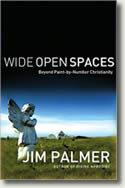Sunday, November 7
How long, O Lord, must I call for help, but you do not listen?
—Habakkuk 1:2
NIV
God sometimes seems silent and absent. Even a cursory reading of the Book of Psalms plainly shows that at times people in scripture who are seeking God felt him to be mysteriously veiled, callously detached, or mulishly unresponsive.
God’s silence, whether in word or deed, is a mysterious language all its own. Because we misinterpret and make certain assumptions about God’s silence, we are not able to receive what God has for us in those times he seems conspicuously missing.
Because God sees to it that “all things work for the good of those who love him” and assures that nothing “will be able to separate us from the love of God,” we must never assume that God’s apparent distance and unresponsiveness means that God has pulled the plug on his loving purpose in our lives.
God uses these silent times to deepen and expand our relationship with him. During those times in my own life I have learned to rest in God, who is free to work in my life independent of my awareness, understanding or even my initiative. I surrender to God my need to always feel him, and trust in his presence, even when it’s veiled or hidden. Moreover, I express my love to God by simply trusting and remaining open to him during the spiritual blackout.
The prophet Habakkuk learned God’s language of silence. The Book of Habakkuk is a conversation between the prophet and God, which begins by Habakkuk accusing God of abandoning him in his time of need. The Lord answers Habakkuk’s complaint by revealing that the work he was doing was veiled from the prophet. Though it was not easy getting there, Habakkuk’s final word to God demonstrates that he has reached a new place in knowing God:
Though the fig tree does not bud and there are no grapes on the vines, though the olive crop fails and the fields produce no food, though there are no sheep in the pen and no cattle in the stalls, yet I will rejoice in the Lord, I will be joyful in God my Savior. The Sovereign Lord is my strength; he makes my feet like the feet of a deer, he enables me to go on the heights.
Habakkuk discovers something as he struggles through the silence and hiddenness of God; even in that place, the joy of God can be real and deeper trust is born.
I don’t understand what’s going on right now God, but today I will trust you. Amen
These Signposts originally appeared on explorefaith in 2006.




